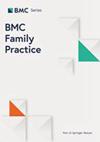泰米尔纳德邦农村地区残疾人自我管理糖尿病的生活经验--案例研究法
IF 3.2
3区 医学
Q1 MEDICINE, GENERAL & INTERNAL
引用次数: 0
摘要
残疾人在糖尿病自我管理方面面临诸多挑战。自我管理不善会导致残疾和糖尿病继发性并发症的恶化。本研究旨在探讨残疾人在糖尿病自我管理方面所面临的挑战以及影响糖尿病自我管理的因素。我们对受糖尿病影响的肢体、神经、视力、听力和多重残疾人士进行了 16 个案例研究。我们采用主题内容分析法对数据进行了分析。残疾人在采用健康饮食方面面临挑战,因为他们无法购买和食用水果和蔬菜,而水果和蔬菜价格昂贵、买不到,也无法获得。由于缺乏包容性的公共场所、缺乏动力、行动依赖他人,他们很难进行体育锻炼。公共卫生系统的药品供应不正常,药费难以承受,妨碍了患者坚持服药。残疾人无法进入实验室,因此无法监测血糖。他们的生活质量很差,生活中伴有疼痛和心理健康问题,这妨碍了他们采取自我管理行为。年龄和性别与残疾的交叉性使自我管理行为更加困难。医疗系统的不便、医疗质量的低下和医疗服务提供者的麻木不仁使自我管理变得更加复杂。本研究记录了残疾人在进行糖尿病自我管理时所面临的挑战。有必要制定包容残疾人的公共卫生政策和规划,以普及糖尿病护理。本文章由计算机程序翻译,如有差异,请以英文原文为准。
Lived experiences of diabetes self-management among persons with disabilities in rural Tamil Nadu – a case study approach
People with disabilities have numerous challenges in diabetes self-management. Poor self-management leads to the worsening of disability and secondary complications of diabetes. This study was conducted to explore the challenges in diabetes self-management and the factors influencing diabetes self-management among people with disabilities. We conducted 16 case studies among people with physical, neurological, visual, hearing, and multiple disabilities who were affected by diabetes. We adopted a thematic content analysis approach to analyse the data. People with disabilities have challenges in adopting healthy diets as they are unable to purchase and consume fruits and vegetables which are costly, unavailable, and inaccessible. They have difficulty in doing physical activity due to lack of inclusive public spaces which are inaccessible, lack of motivation, and dependence on others for their mobility. Irregular drug supply in the public health system and unaffordable cost of drugs hamper adherence to medications. Laboratories are inaccessible to people with disabilities thus preventing monitoring of blood sugars. They have poor quality of life, life with pain and mental health issues, which prevent adoption of self-management behaviors. The intersectionality of age and gender with disability worsens self-management behaviors. Inaccessible health system, poor quality of health care and insensitive health care providers further complicate self-management. This study documents the challenges faced by persons with disabilities in practicing diabetes self management. There is a need for public health policy and planning that is inclusive of persons with disabilities to make access to diabetes care universal.
求助全文
通过发布文献求助,成功后即可免费获取论文全文。
去求助
来源期刊

BMC Family Practice
医学-医学:内科
CiteScore
3.20
自引率
0.00%
发文量
0
审稿时长
4-8 weeks
期刊介绍:
BMC Family Practice is an open access, peer-reviewed journal that considers articles on all aspects of primary health care research. The journal has a special focus on clinical decision making and management, continuing professional education, service utilization, needs and demand, and the organization and delivery of primary care and care in the community.
 求助内容:
求助内容: 应助结果提醒方式:
应助结果提醒方式:


